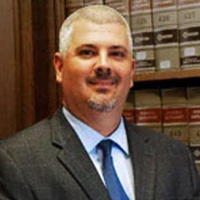Virginia Real Estate Lawyer List
Jerome P. Friedlander II
✓ VERIFIEDAttorney Friedlander is a practicing lawyer in the state of Virginia.
Jack T. Randall
✓ VERIFIEDAt Randall, Page & Bruch, P.C., we are your experienced, local and effective traffic defense attorneys. We focus on traffic offenses, criminal defense... (more)
Aubrey Hampton Brown III
✓ VERIFIEDAubrey Brown is a member of the firm’s litigation section, and was named a shareholder in 2018. His practice crosses multiple areas of law, consist... (more)
Stephen E. Scarce
✓ VERIFIEDPractice focuses on business and real estate matters, including purchases and sales, lender representation, business and loan workouts, commercial rea... (more)
Trevor B. Reid
✓ VERIFIEDMr. Reid joined Parker, Pollard & Brown as an associate after receiving his law degree from the University of Richmond in 2008. His practice is co... (more)
Meredith L. Yoder
✓ VERIFIEDPractice focuses on business and commercial law matters, including: civil litigation, mergers and acquisitions, general corporate matters; commercial ... (more)
Austin Wallace
✓ VERIFIEDAustin Wallace leads the firm’s residential real estate practice. Austin represents purchasers and sellers in residential and commercial real estate... (more)
Aubrey Hampton Brown III
✓ VERIFIEDAubrey Brown is a member of the firm’s litigation section, and was named a shareholder in 2018. His practice crosses multiple areas of law, consist... (more)
Stephen Scarce
✓ VERIFIEDSteve Bryant is a member of the firm’s litigation section. Steve defends clients charged with serious traffic offenses including DUIs; he was recen... (more)
Trevor Reid
✓ VERIFIEDMr. Reid joined Parker, Pollard & Brown as an associate after receiving his law degree from the University of Richmond in 2008. His practice is concen... (more)











